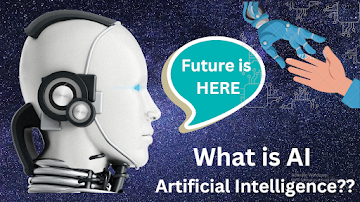what is AI ( Artificial Intelligence) and How it is changing the work style ?
Over the past few decades, AI has rapidly advanced and is now changing the way we work and live. Here are a few examples of how AI is transforming the work style:
Automation of tasks - AI has enabled the automation of repetitive and mundane tasks such as data entry and analysis, freeing up time for workers to focus on more important and creative tasks.
Improved accuracy - AI algorithms can process large amounts of data and make predictions with high accuracy, reducing the possibility of human error and increasing efficiency.
Improved customer experience - AI chatbots and virtual assistants are providing quicker and more personalized customer service, helping businesses to improve their customer satisfaction levels.
Personalized learning and development - AI can provide personalized learning and development recommendations for employees based on their job responsibilities, skills, and learning style.
Improved productivity - AI can assist workers in completing tasks faster, freeing up time to work on higher value projects.
In conclusion, AI is rapidly changing the way we work and it is important for businesses and individuals to embrace these advancements and incorporate them into their work style to stay competitive. While AI has the potential to bring many benefits, it is also important to consider the potential impacts on employment and ensure that ethical considerations are taken into account in its development and implementation.



Comments
visit my website : https://theskillfusion.com/web-designing-course-in-jalandhar/